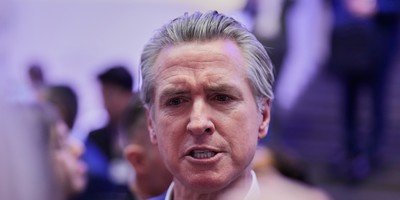Whoever takes the oath of office as President of the United States in January of 2013 will inherit an economy facing multiple challenges:
Undoubtedly, still-escalating federal spending will have the government bumping up against the debt ceiling again. By then, total federal debt will be larger than our GDP.
Unemployment is likely to remain high.
The supply and reliability of our power-generating infrastructure will be stressed and at risk due to President Obama’s anti-energy policies.
Social Security and Medicare will still need to be reformed significantly to address long-term fiscal imbalances.
And the economy will encounter new headwinds as the landmines of tax increases with which Obama has salted the economic landscape are detonated. These include new taxes for Obamacare, the scheduled expiration of the Bush tax cuts, and the end of Obama’s temporary reduction in Social Security withholding.
Obama has shown no indication of modifying his policies or agenda. Presumably, any of the Republican candidates would favor change on these issues (although perhaps not on Social Security and Medicare), but would he or she actually be able to solve these problems, even if there were a veto-proof Republican Congress?
The big political question for election year 2012 is: How much change would Republicans want? Would they downsize government as much as Obama upsized it? Will Republicans nominate a safe, moderate candidate (think: Ford, Bush, and Dole)—a technocratic tinkerer who accepts the entrenched paradigm of Big Government, and seeks to manage Leviathan better than Democrats would? Or will they opt for an unabashed conservative, a major reformer with a radical vision for smaller government?
That question wasn’t even conceivable a year ago, but the tectonic plates in the American political landscape may be starting to shift. Whiffs of radical reform are in the air.
Recommended
Herman Cain, who favors a three-step plan to replace the income tax with a national sales tax and the privatization of Social Security, has risen in the polls since his impressive victory in the Sept. 24 Florida straw poll.
On Sept. 27, Newt Gingrich unveiled his “21st Century Contract With America,” proposing to replace such venerable bureaucracies as the National Labor Relations Board and the Environmental Protection Agency. In doing so, Gingrich dared to challenge two of the most powerful Democratic special interest groups in America, environmentalists and labor unions (the strangest political bedfellows in our country, since hardcore greens would eliminate jobs in industry if they could).
It is possible that the bold proposals of Cain and Gingrich are just so much noise—red meat offered by dark horse candidates designed to excite passionate conservatives, but that are anathema to Republicans who believe that a more centrist nominee would be more electable?
Another possibility is that a majority of Republicans will regard the 2012 election as an existential crossroad for our country, a last chance to change direction before we end up like Greece—financially bankrupt, economically moribund, and politically convulsed. In this scenario, just as the Democrats in 2008 nominated a man of the left, Obama, rather than a more centrist candidate, so the GOP will nominate an anti-Obama, a true-blue conservative as committed to a radical swing to the right, just as Obama pushed a radical swing to the left.
If the political pendulum swings far enough to the right to produce a 2012 conservative electoral landslide, and then Republicans follow through with bold cuts in federal spending and power, the years 2013 and 2014 will be crucial. If conservative policies revive the economy quickly, then Republicans could hold on to their 2012 gains in the 2014 mid-term elections. If not, or if they step on too many toes, then there could be an anti-Republican backlash for moving too far to the right, just as voters punished Democrats in the 2010 elections for moving too far to the left.
If a sizable Republican majority were elected in 2012, would they "roll the dice" and risk political suicide by instituting major reforms? I imagine there is some serious soul-searching going on now. I wonder how many of them are grappling with the dilemma that must confront every office-seeker in a democratic electoral system: Should I do what will get me elected or re-elected, even if I know that the policies I support will weaken our country, or should I vote for what I know will help the country, even if it costs me my political career?
These next few years will be fascinating.

























Join the conversation as a VIP Member